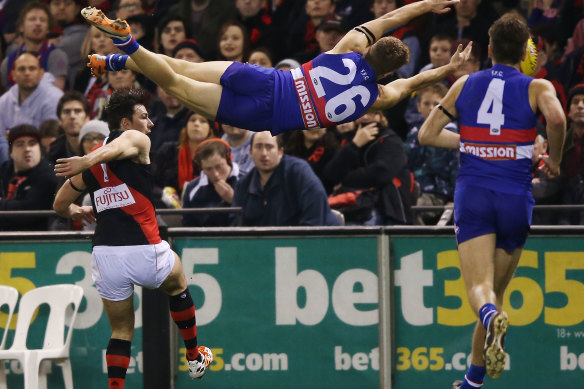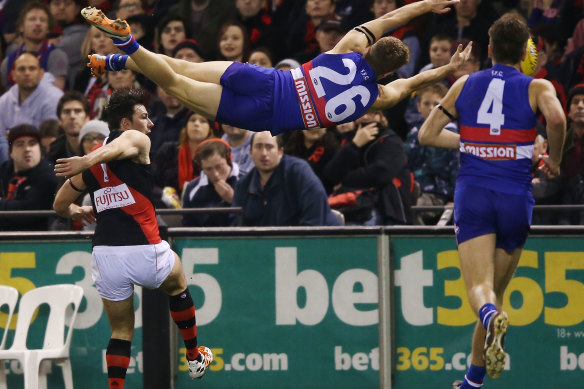To allow gambling ads or not? It’s a curly topic the government needs to grapple with this week, with the odds on that it will welch on instituting a total ban in favour of a policy that leaves everyone unhappy but delivers some crumbs for all.
Forget problem gamblers, it is the commercial television networks in particular that are addicted to the revenue from bookie ads, and what government has an appetite for upsetting major media companies so close to a federal election?

The media is addicted to advertising revenue from bookmakers.Credit: iStock
That is probably why broadcast media companies hope they have the leverage to demand a cut to their annual spectrum fees in response to a partial crackdown on gambling advertising.
The next week will be crucial for media companies, bookmakers and sporting codes to respond to Communications Minister Michelle Rowland’s working proposal to extend a ban on gambling advertising to an hour before and after live sport, introducing a cap of two ads an hour on free-to-air TV until 10pm, and a blanket ban on ads on social networks and other digital platforms.
When viewed through the eyes of a purist, Australia punches way too far above its weight in terms of gambling per capita (losing a total estimated at $25 billion a year). And having betting advertisements pop up around sporting broadcasts encourages people to bet and should be banned.
The government’s overarching responsibility is for the safety and wellbeing of the community, so canning bookie ads should be a no-brainer. Right?
Banning gaming ads that have increasingly become a lifeblood for the somewhat moribund industry is risky for any government.
But the government is also responsible for a healthy media industry, which broadcasts free content.
The rub is that the commercial media industry is now Jonesing for the revenue fix from gambling ads. This is especially true for free-to-air television which has been in a structural slow-mo spiral for years, challenged by the big social media platforms and streaming services that have undercut audiences and advertising revenue.
For years, media experts have been saying that Australia can’t support three commercial television networks.
Indeed, the ongoing viability of Network Ten, which is the minnow of the industry, is regular fodder for discussion on the media landscape. It has been owned by US giant Paramount since 2019, so there is scant visibility into its financial position but on ratings, it comes in a very distant third.
Banning gaming ads that have increasingly become a lifeblood for the somewhat moribund industry is risky for any government.
There are lots of different statistics produced around how much bookies spend on advertising each year, but the most reliable is probably from the Australian Media and Communications Authority, which says $240 million in revenue reaches the coffers of TV and commercial radio and online media each year. Almost 70 per cent of this was spent on television.
But the government understands that outside vested interests of the media, bookies and the sports organisations, the community is generally in favour of minimising gambling advertising.
That said, the community probably doesn’t recognise the ecosystem that has been built around the money provided by bookmaker advertising.

The major football codes get a slice of that gambling money.Credit: Getty Images
Many sporting organisations, particularly the major football codes, get a slice of that gambling money, which they say allows them to foster grassroots competitions.
Without gambling advertising revenue, the large media organisations could not afford the billion-dollar product packages they pay to tier-one sports, like the NRL and AFL.
It is a fraught decision for the government, which explains why more than a year after the parliamentary inquiry spearheaded by the late former MP Peta Murphy recommended a total ban, a final decision has yet to be made.
There are plenty within Canberra pushing for what has been dubbed “Murphy’s Law”.
But the stage appears to be set for a significantly watered-down version.
